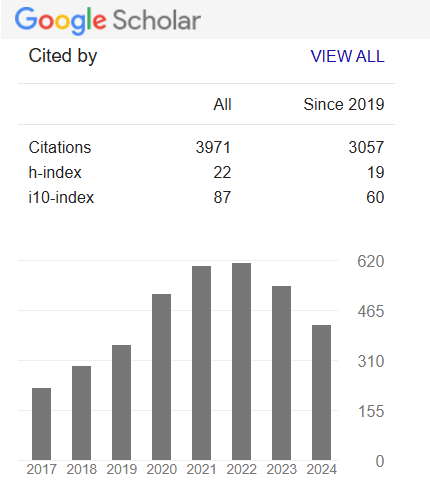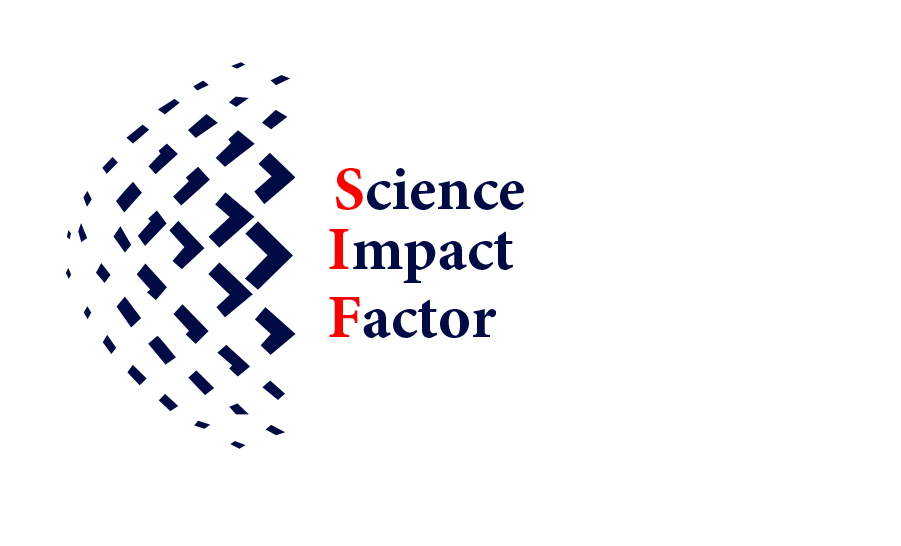COVID-19 : A Risk for Diabetes Induced Male Subfertility
Keywords:
COVID-19, Male Subfertility, Diabetes, Male Reproductive health, Pancreatic islets damageAbstract
The latest corona virus epidemic COVID-19 triggered by the SARS-Cov2 virus has become exponentially high across the globe. Moderate and extreme pneumonia along with respiratory distress, fever, fatigue and malaise are clinically decripted among infected persons. Patients with severe COVID-19 can also develop a systemic inflammatory response that leads to multisystem organ dysfunction. Case studies across many countries suggest that severe acute respiratory syndrome corona viruses (SARS-CoV and SARS-CoV-2) can invade islet cells via angiotensin converting enzyme-2 (ACE-2) receptors and is responsible for reversible β-cell damage and transient hyperglycemia and diabetic ketoacidosis. Also, hypercytokinemia might have indirect destabilizing effect on pancreatic islets in COVID-19 patients that accelerate development of insulin resistance and type 2 Diabetes Mellitus (T2DM). Testicular resistance of insulin and altered insulin signalling on the other hand is responsible for decreased steroidogenesis by Leydig cells. Cytokine and chemokines in diabetic testicular tissue also induce sperm cell apoptosis. Additionally, ACE2 expression in the testis is restricted to the Leydig and Sertoli cells in humans which suggests that SARS-Cov2 has the likelihood of infecting the male gonad. Autopsied testicular and epididymal tissues of COVID-19 patients also showed signature of inflammation and germ cell apoptosis. This review work hypothesize that the male subfertility observed in COVID 19 survivors may be due to direct invading of SARS Cov 2 virus in testis or by development of diabetes and transient glucose metabolic disorders.
Downloads
References
Amaral S, Paulo J Oliveira, João Ramalho-Santos (2008). Diabetes and the impairment of reproductive function: possible role of mitochondria and reactive oxygen species. Current Diabetes Review 4(1): 46-54.
Amarante-Mendes GP, Adjemian S, Branco LM, Zanetti LC, Weinlich R, Bortoluci KR (2018) Pattern Recognition Receptors and the Host Cell Death Molecular Machinery. Frontiers in immunology 9: 2379.
https://doi.org/10.3389/fimmu.2018.02379
An T, Wang Y, Liu J, Pan Y, Liu Y, et al. (2017). Comparative analysis of proteomes between diabetic and normal human sperm: Insights into the effects of diabetes on male reproduction based on regulation of mitochondria-related proteins. Molecular Reproduction and Development (85):7–16.
Behzad S, Aghaghazvini L, Reza Radmard A. (2020). Extrapulmonary manifestations of COVID-19: Radiologic and clinical overview. Clinical Imaging (66): 35-41.
Bendayan M, Robin G, Hamdi S, Mieusset R, Boitrelle F. (2021). COVID-19 in men: With or without virus in semen, spermatogenesis may be impaired. Andrologia 53(1): e13878. https://doi.org/10.1111/and.13878
Boddu SK, Aurangabadkar G, Kuchay MS (2020) New onset diabetes, type 1 diabetes and COVID-19. Diabetes and Metabolic Syndrome, 14(6), 2211–2217.
Broniowska KA, Oleson BJ, Corbett JA (2014) Beta cell responses to nitric oxide. Vitamins and Hormones (95): 299-322.
Cardozo AK, Heimberg H, Heremans Y, Leeman R, Kutlu B, et al. (2001). A comprehensive analysis of cytokine-induced and nuclear factor-kappa B-dependent genes in primary rat pancreatic beta-cells. The Journal of Biological Chemistry, 276(52): 48879–48886.
https://doi.org/10.1074/jbc.M108658200
Chen X, Li R, Pan Z, Qian C, Yang Y, et al. (2020a). Human monoclonal antibodies block the binding of SARS Cov2 spike protein to angiotensin converting enzyme 2 receptor. Cellular and Molecular Immunology 17: 647- 649.
Chen J, Jiang Q, Xia X, Liu K, Yu Z, et al. (2020b). Individual variation of the SARS-CoV-2 receptor ACE2 gene expression and regulation. Aging Cell, 19(7). e13168.
Coperchini F, Chiovato L, Croce L, Magri F, Rotondi M. (2020). The cytokine storm in Covid 19: An overview of the involvement of the chemokine/chemokine receptor system. Cytokine Growth Factor Review (53): 25-32.
Hayden MR (2020) An Immediate and Long-Term Complication of COVID-19 May Be Type 2 Diabetes Mellitus: The Central Role of β-Cell Dysfunction, Apoptosis and Exploration of Possible Mechanisms. Cells 9 (11): 2475.
Ilacqua A, Izzo G, Emerenziani GP, Baldari C, Aversa A (2018) Lifestyle and fertility: the influence of stress and quality of life on male fertility. Reproductive Biology and Endocrinology 16(1):115.
Jesenak M, Brndiarova M, Urbancikova I, Rennerova Z, Vojtkova J et al. (2020) Immune Parameters and COVID-19 Infection - Associations with Clinical Severity and Disease Prognosis. Frontiers in Cellular and Infection Microbiology. 10: 364.
Younis J S, Abassi Z, Skorecki K. (2020) Is there an impact of the Covid 19 pandemic on male fertility? The ACE2 connection. American Journal of Physiology (Endocrinology and Metabolism) 318(6): 878-880.
Jun Sun. (2020) The hypothesis that SARS-cov 2 affects male reproductive ability by regulating autophagy: Medical Hypotheses (143): 110083.
Li H, Xiao X, Zhang J, Zafar M I, Wu C, et al. (2020). Impaired spermatogenesis in covid 19 patients. E Clinical Medicine (28): 100604.
Machhi J, Herskovitz J, Senan AM, Dutta D, Nath B, et al. (2020). The Natural History, Pathobiology, and Clinical Manifestations of SARS-CoV-2 Infections. Journal of Neuroimmune Pharmacology, (21): 1–28.
Maresch CC, Stute DC, Alves MG, Oliveira PF, de Kretser D M, Linn T. (2018). Diabetes-induced hyperglycemia impairs male reproductive function: a systematic review. Human Reproduction Update 24(1): 86-105.
Nna VU, Bakar ABA, Ahmad A, Mohamed M (2018) Diabetes-induced testicular oxidative stress, inflammation, and caspase-dependent apoptosis: The protective role of metformin. Archives of Physiology and Biochemistry 126(5): 377-388.
Op de Beeck A, Eizirik DL (2016) Viral infections in type 1 diabetes mellitus--why the β cells? Nature Reviews Endocrinology 12(5): 263-273.
Ortis F, Naamane N, Flamez D, Ladrière L, Moore F, et al. (2010) Cytokines interleukin-1beta and tumor necrosis factor-alpha regulate different transcriptional and alternative splicing networks in primary beta-cells. Diabetes. (59): 358–374.
Pavlinkova G, Margarian H, Zatecka E, Valaskova E, Elzeinova, F, et al. (2017) Transgenerational inheritance of susceptibility to diabetes-induced male subfertility. Scientific reports (7): 1–14.
Rubino F, Amiel S A, Zimmet P, Alberti G, Bornstein S, et al. (2020). New-Onset Diabetes in Covid-19. New England Journal of Medicine 383(8): 789-790.
Russell MA, Morgan NG (2014) The impact of anti-inflammatory cytokines on the pancreatic β-cell. Islets. 6(3): e950547.
Sette A, Crotty S. (2021). Adaptive immunity to SARS-CoV-2 and COVID-19. Cell, 184(4): 861–880.
Sorokin AV, Karathanasis SK, Yang ZH, Freeman L, Kotani K, Remaley AT (2020) COVID-19-Associated dyslipidemia: Implications for mechanism of impaired resolution and novel therapeutic approaches. FASEB Journal 34(8): 9843-9853.
Viswanathan V, Puvvula A, Jamthikar A D, Saba L, Johri A M, et al. (2021). Bidirectional link between diabetes mellitus and coronavirus disease 2019 leading to cardiovascular disease: A narrative review. World Journal Diabetes 12(3): 215-237.
Wang F, Nie J, Wang H, Zhao Q, Xiong Y, et al. (2020). Characteristics of peripheral lymphocyte subset alteration in Covid 19pneumonia. Journal of Infectious Diseases (221): 1762-1769.
Westwell-Roper C, Ehses J A. (2014). Is there a role for the adaptive immune system in pancreatic beta cell failure in type 2 diabetes? Diabetologia 57(3): 447-450.
Wu Q, Zhou L, Sun X, Yan Z, Hu C, Wu J. 2017. Altered Lipid Metabolism in recovered SARS patients twelve years after infection. Scientific Reports (7): 9110.
Yang Q, Vijayakumar A, Kahn BB (2018) Metabolites as regulators of insulin sensitivity and metabolism. Nat Rev Mol Cell Biol. 19(10):654-672.
Yang JK, Lin SS, Ji XJ, Guo LM (2010). Binding of SARS coronavirus to its receptor damages islets and causes acute diabetes. Acta Diabetologica (47): 193–199.
Ye ZW, Yuan S, Yuen KS, Fung SY, Chan CP, Jin DY (2020). Zoonotic origins of human coronaviruses. International Journal of Biological Sciences 16(10): 1686-1697.
Yoshimoto FK (2020). The Proteins of Severe Acute Respiratory Syndrome Coronavirus-2 (SARS CoV-2 or n-COV19), the Cause of COVID-19. Protein Journal: 39(3): 198-216.
Zhang H, Zhou P, Wei Y, Yue H, Wang Y, et al. (2020). Histopathologic Changes and SARS-CoV-2 Immunostaining in the Lung of a Patient With COVID-19. Annals of Internal Medicine, 172(9): 629–632. https://doi.org/10.7326/M20-0533.
Zhao S, Zhu W, Xue S, Han D (2014) Testicular defense systems: immune privilege and innate immunity. Cellular and Molecular Immunity 11(5): 428-437.
Downloads
Published
How to Cite
Issue
Section
License
Copyright (c) 2021 Banerjee Maitrayee, Das Dolan

This work is licensed under a Creative Commons Attribution-NonCommercial-NoDerivatives 4.0 International License.
Open Access This article is licensed under a Creative Commons Attribution 4.0 International License, which permits use, sharing, adaptation, distribution and reproduction in any medium or format, as long as you give appropriate credit to the original author(s) and the source, provide a link to the Creative Commons license, and indicate if changes were made. The images or other third party material in this article are included in the article’s Creative Commons license unless indicated otherwise in a credit line to the material. If the material is not included in the article’s Creative Commons license and your intended use is not permitted by statutory regulation or exceeds the permitted use, you will need to obtain permission directly from the copyright holder. To view a copy of this license, visit http://creativecommons.org/ licenses/by/4.0/











